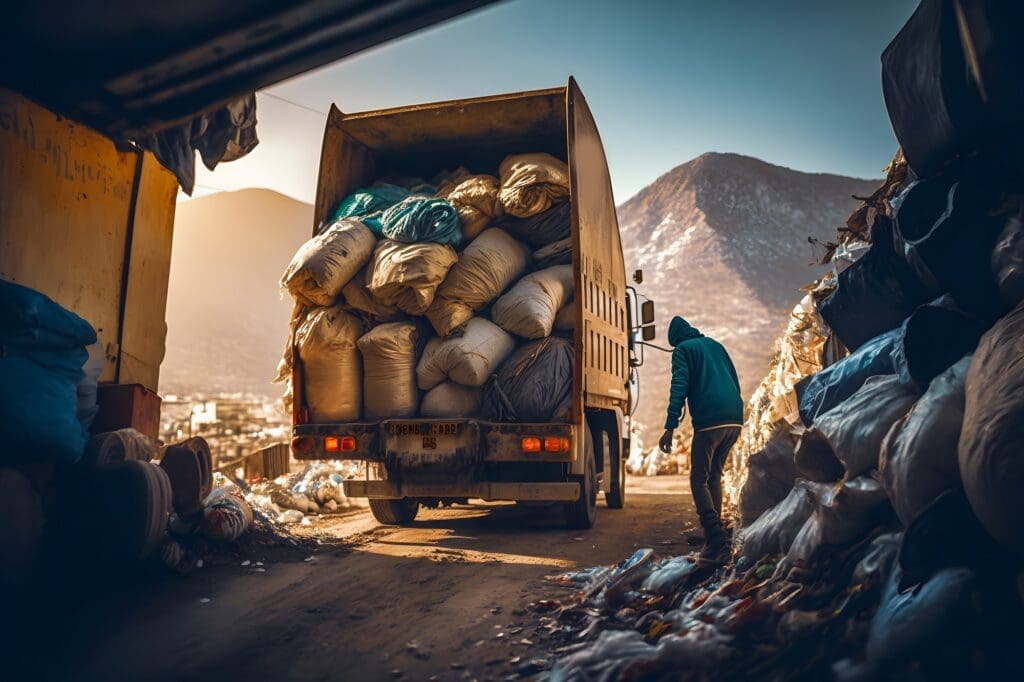According to the monthly journal U.S. Pharmacist, one in 10 people experiences a foodborne illness each year. Even more serious: 128,000 are hospitalized, 3,000 die, and 33 million healthy life-years* are lost. The U.S. Food and Drug Administration (FDA) has been taking steps to combat food-borne illness with its Food Safety Modernization Act (FSMA), which includes the rule on Sanitary Transportation of Human and Animal Food (STF). “The objective is to prevent food from becoming unsafe by ensuring that it is properly refrigerated, that vehicles and trailers are properly cleaned and sanitized, pallets are sanitary and food is properly protected and stored at correct temperatures during transport,” said Jon Samson, executive director of the American Trucking Associations’ Agricultural and Food Transporters Conference.
The new rule covers the transportation of most food for people and animals (with a few exceptions) as ferried by transportation equipment, which includes “bulk and non-bulk containers, bins, totes, pallets, pumps, fittings, hoses, gaskets, loading systems, and unloading systems…(and) a railcar not attached to a locomotive or a trailer not attached to a tractor.” (21 CFR 1.904).The rules establish requirements in four main areas:
- Vehicles and transportation equipment: In a nutshell, vehicles and transportation equipment must be designed and maintained in a manner that keeps food safe. They must be easy to clean and easy to keep clean. Those that carry refrigerated food must be able to maintain stable temperatures.
- Transportation operations: Everyone involved in shipping food has to ensure that the food stays safe during the entire process. Specific requirements include adequate temperature controls, inspections of vehicles between loads, and anti-contamination procedures.
- Training: Carrier personnel needs to complete training in sanitary transportation practices, and everyone covered by the rule must provide documentation that the training has been completed.
- Records: Carriers must maintain records of written procedures, agreements, and training.
Large businesses had to comply with these rules beginning February April 6, 2017. Small businesses were given an additional year to comply, but as of April 6, 2018 everyone involved with the transportation of human and animal food must adhere to the rules—with a few exceptions.
Are You Covered?
If you are a shipper, loader, carrier (motor or rail), or receiver involved in transporting food, you are most likely covered by the STF. There are several exemptions, including:
- Transportation by ship or air
- Shippers, receivers, loaders or carriers that have less than $500,000 in average annual revenue
- Mexican or Canadian firms shipping food through the U.S., as long as the food is not distributed in the U.S.
- Transportation activities performed by a farm.
- Transportation of compressed food gases and food contact substances
- Transportation of human food byproducts for use as animal food without further processing
- Transportation of food that is completely enclosed by a container (except a food that requires temperature control)
The FDA has also published three waivers, for:
- Transporters of milk products that are inspected under a separate program
- Businesses that provide food directly to consumers (like restaurants). Several restrictions apply.
- Some businesses that transport shellfish, when already subject to other inspections and certifications.
Shippers, carriers, receivers, etc. may be subject to different rules under the STF. It’s important to know that if you serve more than one function (e.g. you’re both a carrier and a shipper), you will need to meet requirements of both functions. Also good to know: Under the new rule, shippers hold the primary responsibility.
Freight brokers are shippers
That’s right. Even though brokers don’t touch the shipments or the equipment used to haul them, they are classified as shippers under this rule. In other words, if you are a freight broker you must follow the rule as if you were a shipper, and the primary responsibility for safe transport lies with you.
How To Comply?
The FDA has a fact sheet and FAQs online that cover specifics, but the basic tenets of the new rules are:
Vehicles and transportation equipment:
All equipment must be designed to be ”suitable and adequately cleanable” to keep food safe, maintained to prevent any spoilage and stored “in a manner that prevents their harboring pests or becoming contaminated in any other manner” (21 CFR 1.906(a-d)). Equipment must also be designed, maintained, and equipped to provide adequate temperature control (21 CFR 1.908(c)).
Transportation operations:
Since there are many stops in the supply chain, this section of the rule is the most complicated and has the most specific regulations, but basically, shippers must develop and implement written procedures to:
- Maintain adequate temperature controls
- Prevent ready-to-eat food from touching raw food,
- Protect food from contamination by non-food items in the same load or previous load,
- Prevent cross-contact of food.
Procedures include written rules for sanitation, handling, and temperature profiles and tolerances for the entire chain of transport, from loading to transportation movement to unloading.
Training:
Shippers (and freight brokers) are responsible for training carrier personnel. This training is required when both the carrier and shipper agree that the carrier is responsible for sanitary conditions during transport. Training must take place wherever you hire personnel and if operations change later (e.g. you change cleaning procedures, or begin hauling food that has been processed differently). You can use your own training program, provide training from a third-party, or use this FDA Training Module. You are required to create and keep documentation of the training provided.
Records:
In addition to keeping records of training, shippers must also develop and maintain records of procedures and agreements. Carriers, loaders and receivers need to keep records of the shipper’s written requirements. All records should be kept for a period of one year.
Though these rules sound tough, the FDA has given shippers a couple of breaks: If one batch of food spoils, it does not automatically spoil the entire load; and temperature deviations between what’s recorded on the bill of lading and what’s recorded what is in transit or upon arrival must be “material” and not incidental in order for the shipper to be held liable.
Where To Find Help?
As mentioned, the FDA has several online resources. The International Refrigerated Transportation Association has also published the Refrigerated Transportation Best Practice Guide, a free tool that outlines specific procedures from loading to the monitoring of staged trailers to the departure and arrival process for loaded trailers. It also includes a number of helpful checklists. Another help: many of the electronic logging devices (ELDs) recently installed in order to comply with the Federal Motor Carrier Safety Administration’s ELD mandate can assist with some requirements by monitoring and recording temperatures.
And of course, there’s us. Next Exit Logistics takes care of your freight shipping needs from beginning to end; have special expertise in providing freight services for unusual, oversize, or overweight shipments; are certified to arrange the shipment of hazardous materials; and perhaps most importantly, provide excellent customer service. To learn more about our services, call Next Exit Logistics at 866-624-2661 or contact us via e-mail.
* A measurement of the number of remaining years that a person would live without disability.




